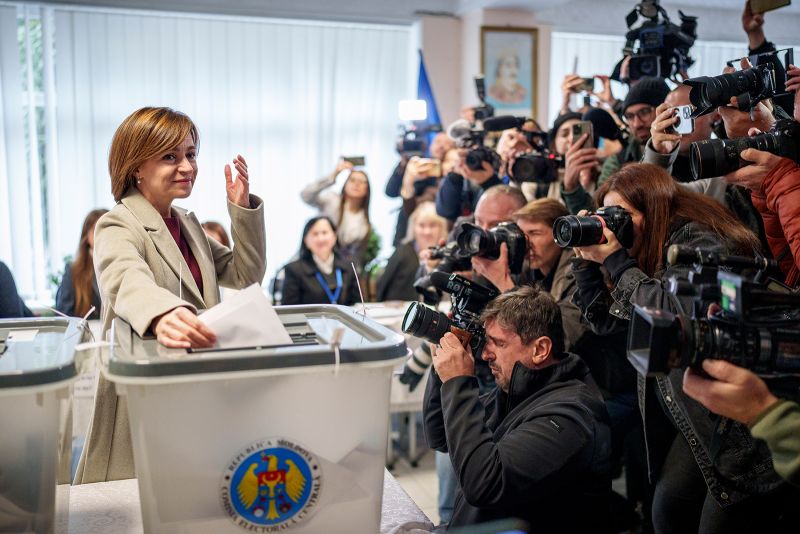Moldova’s crucial referendum on joining the European Union is too close to call, partial results showed Monday, as President Maia Sandu condemned an “unprecedented assault” on the country’s democracy.
With just over 1.4% of ballots still to be counted, 50.2% had voted “yes” in the referendum, according to the country’s Central Election Commission. The tight margin would come as a blow to Sandu, who had been hoping for a clear endorsement of the pro-EU path she has charted during her first presidential term.
Sandu, who framed the vote as a choice for the former Soviet country between pursuing its nascent European future or remaining lodged within the Kremlin’s orbit, also failed to secure enough votes to win outright in the country’s presidential election, held on the same day. A second round will be held on November 3.
In an uncharacteristically forceful statement issued late Sunday night, Sandu accused foreign groups of attempting to undermine Moldova’s democratic process and “using the most disgraceful means to keep our nation trapped in uncertainty and instability.”
Sandu said Moldovan authorities had “clear evidence that these criminal groups aimed to buy 300,000 votes – a fraud of unprecedented scale.”
In a video posted to his Telegram account last month, Shor had said he would pay voters the equivalent of $28 for registering with his campaign and more if they voted against the referendum.
Partial results also put Sandu first in the presidential race with 42.1% of the vote, ahead of her closest challenger Alexandr Stoianoglo – a former prosecutor general running for the pro-Russian Party of Socialists – with 26.3%.
The two will now face off in the second round. If other pro-Russian parties and voters throw their support behind Stoianoglo, the November 3 run-off could be extremely tight.
